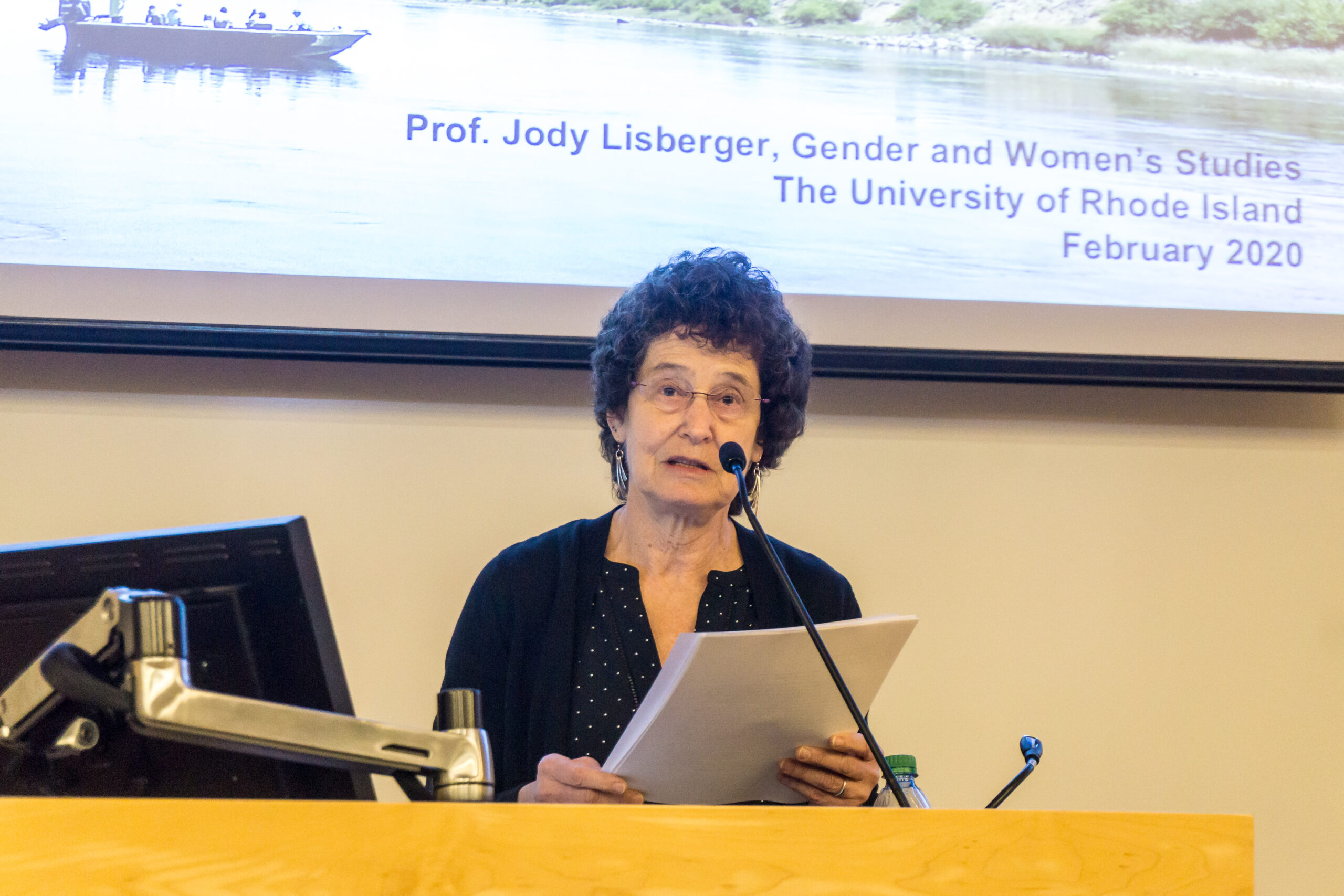Gender and women’s studies professor Jody Lisberger spoke about nuclear waste’s impact on ecology and gender on Tuesday night as part of a colloquium series.
The Dana Shugar Colloquium is held once or twice a semester and acknowledges scholarly talent, contributes to the community and supports dialogue.
At the event, Lisberger presented research about the danger of the largest nuclear waste site in Hanford, Washington. Hanford, according to Lisberger, is a shrub steppe desert half the size of Rhode Island and was a site for the Manhattan Project.
The research Lisberger conducted on Hanford and Richland is personal. She explained her father worked in the late 1940s as an electrical engineer for General Electric in Hanford, and when Lisberger was 8-years-old he died of colon cancer.
When her mother died of blood cancer in 2007, Lisberger discovered a lawsuit in her mother’s belongings involving her family and General Electric. This link between nuclear radiation and her father’s cancer motivated Lisberger to search for what was really going on in Washington.
During her presentation, Lisberger mentioned that she always wondered what her father did at Hanford. In the 1940s, it was a site for developing nuclear weapons, but only the employees knew of these projects. She said that one of the largest civil defense campaigns was operated during the Cold War and successfully convinced the public that nuclear warfare was nothing to be concerned about.
“The extent and collusion of top secrecy in the name of patriotism is impressive,” Lisberger said.
The dangers of nuclear waste, however, go beyond secrecy, according to Lisberger. Toxic nuclear waste has serious implications on the environment.
“The [Department of Energy] people often referred to what I would have said are colossal accidents as ‘incidents,’” Lisberger said after listening in on a department hearing.
Lisberger emphasized that just because an area is named “clean” does not mean it is uncontaminated and that the ecology surrounding the nuclear site was not left unharmed.
When Lisberger visited Hanford and Richland as part of her research, she said she was surprised to hear guides boast that the area was currently home to extensive and rare species of animals, flora and fauna because it had been previously isolated for plutonium production. According to Lisberger, this false narrative erases the damages done by the state.
As a professor in the gender and women studies department, Lisberger devoted much of her presentation to address the issues the nuclear site has caused in regards to gender. In her talk, she mentioned the “reference man,” which is a guide showing how nuclear radiation can affect one’s health.
The reference man, however, excludes women and people of color. According to Lisberger, it is not productive to only research the effects of one profile.
“And yet studies show that women and children are more vulnerable to nuclear risks than adult men, and women are also 37.5 percent more likely than men to develop cancers from the same amount of radiation,” she said.
Lisberger also said that getting injured was normalized in this field by the nature of the work, and women were also paid less. According to Lisberger, women were told the nuclear materials were dangerous, but there was “no mention” of radioactivity. Female employees were told not to wear gloves while working, and in present times, Lisberger said hazmat suits are not designed to fit women.
She stated that action is necessary to protect the environment and the health of people living around the nuclear waste site. The modes of containment and secrecy are related to hegemonic powers, and the current administration is taking action to destroy the Environmental Protection Agency. Lisberger plans to write a novel based on the experiences in Hanford and Richland in the future.
Sophomore Paige Chakouian, who had taken a class on feminist theory with Lisberger previously, attended the lecture.
“I had never heard about Hanford before, and the effects of all the nuclear waste are very shocking and disturbing,” said Chakouian.





